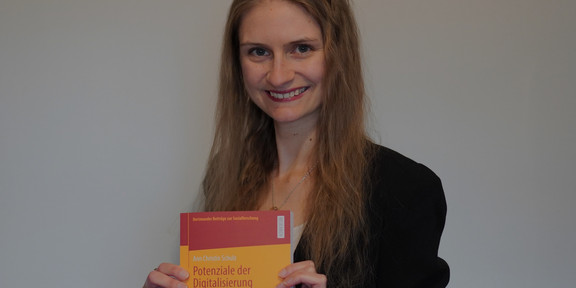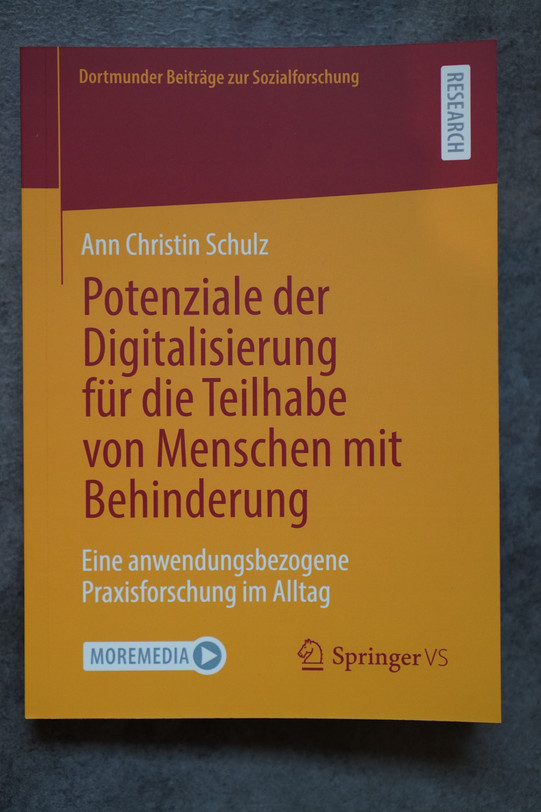Dissertation by Ann Christin Schulz published in the series Dortmunder Beiträge zur Sozialforschung by Springer

All areas of life are affected by digitalisation. Nevertheless, not all people are able to cope adequately with this process. This means that they are increasingly being excluded from society and are at risk of (digital) exclusion. The coronavirus pandemic in 2020 in particular gave digitalisation an enormous boost. Analogue practices were shifted to the digital world, creating a multitude of opportunities for participation. At the same time, however, the risk of exclusion has also increased, which is particularly evident for people who are predisposed to marginalisation. Ann Christin Schulz took this as an opportunity to take a closer look at the social participation of people with intellectual disabilities. She asked herself superficially what potential digitalisation offers for the participation of people with (intellectual) disabilities and sought answers with application-oriented practical research. To this end, Ann Christin Schulz conducted research in four facilities for people with disabilities and worked ‘embedded’ in a residential facility for a year. The main result is a variety of social practices with digital technologies in residential facilities as well as their opportunities and risks for the participation of people with intellectual disabilities. In addition, the special position of people from the immediate environment for the promotion of participation is emphasised.
The complete dissertation has been published in the series ‘Dortmunder Beiträge zur Sozialforschung’ by Springer and can be downloaded here: https://link.springer.com/book/10.1007/978-3-658-46010-5





![[Translate to English:] [Translate to English:]](/storages/zentraler_bilderpool/_processed_/a/f/csm_Kontakt_b86e8d8ecc.png)
